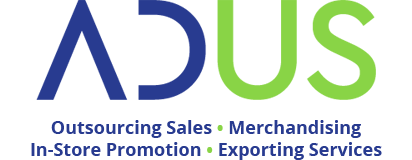The Dilemma of Sustainable Development in SMEs
By George Karlaftis, Founder/Entrepreneur
Friday, June 30, 2023
Read the article by clicking the link here.
The changing nature of the organizational and management challenges is related to the inevitable crises that occur at the different Turning Points (from phase to phase), due to the transition to new business balances that are always associated with corresponding multidimensional risks.
In the early stages of any small company, the founder’s ability to do almost all of the team work gives life to the business. Small companies are built on the talents of the founder: the ability to produce, sell, invent, or anything else that empowers business planning. Therefore, this factor is of utmost importance. However, the founder’s ability to delegate is not generally possible, especially in the early stages as there are few, if any, employees who have executive ability who can be assigned high-responsibility roles.
As the company grows, "new blood" enters to different activities that are segmented, such as sales, production or support in different areas, who first undertake to do a specific task and in later phases some take on responsibilities as executives - if they have and cultivate the appropriate skills - that bridge the "standards" of each role and the nature of each business. It does not mean that the founder had or has these roles, without this being excluded. Skills aside, it is critical to highlight the common inability of many founders to let go of day-to-day management activities and cultivate a culture of delegation. This explains the failure or even collapse of many businesses after the first stage. So, the founder is required to have the culture and ability to allocate his time differently emphasizing staff management.
One thing I think is worth mentioning is the importance of cash and how it fluctuates as the business changes. It is an extremely important resource in the beginning, where it becomes easily manageable when the numbers show, and again a major concern if the organization starts to grow, while when growth slows down, cash must always be in a manageable state.
When the path involves business expansion, the issues of human resources, business planning and required systems become more complex, gradually increasing in complexity and importance as the company moves from slow initial growth to rapid growth. The above resources (assets) must be "acquired" in some way and gradually before each subsequent stage of development, so that there is readiness to be involved in the operational model.
A critical element, although not immediately visible, is for the founder personally the weighing and matching of professional and personal goals. The reality between the professional and the personal is crucial especially when personal wealth increases and when the financial statements of the business are doing well. It is therefore necessary for the founder to reconcile his private life by recognizing the heavy financial and time-energy demands of the new business. Some find these demands overwhelming and quickly find they cannot cope.
A second serious period for the composition and distinction in the plans between the agreement of goals, prerequisites and processes, becomes urgently necessary, when the growth of the business becomes visible both internally and in the market. This leads the founder to take his time and risk (if he is not faced with a dilemma or trapped in an introvert culture) the accumulated equity of the business in order to further develop it. So, the problem is whether the founder is funneling capital to personally enjoy the benefits of corporate success. Very often the founder wants both, which carries significant risk. To make a realistic decision about the direction to take, he must consider the personal and business requirements of different strategies and rigorously assess his managerial ability to meet these challenges.
Therefore, we would say that business resources and their intelligent decentralized use is the path through which success is founded. This ensures the creation of market share, the forging of customer relationships, the selection of the right suppliers and a technological base for the necessary automation. Also, overwhelmingly dealing with cash is quite important in some stages and less important in others. The changing role of factors clearly shows the need for flexibility and a decentralized orientation of the founder. The “I-do-it-myself” versus “assignment” also requires a flexible management, but it is an extremely difficult undertaking, continuous, and full of challenges. Retaining old strategies and old ways only initially serves a company especially when it has matured and is before "takeoff", and can easily be fatal.
